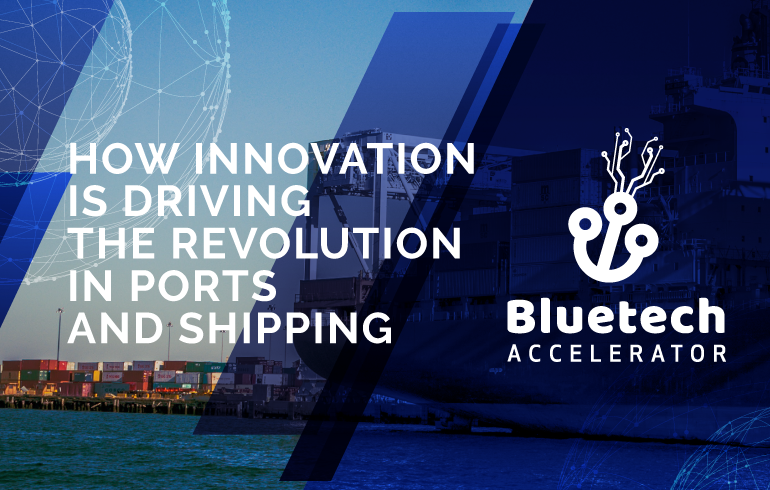Bluetech: Meet António Carvalho, program director

António Carvalho started his work in innovation when he joined Portugal Ventures – he is now leading Bluetech, the first Blue Economy accelerator backed by the Portuguese Ministry of the Sea.
With a background on Corporate Finance & Management, António first came in contact with innovation projects when he joined Portugal Ventures in 2012. Joining this ambitious project that aimed to launch a Startups ecosystem in Portugal that barely existed at that time, is still something he is proud of.
When he joined Beta-i, back in 2017, he took on the challenge of launching The Journey, an open-innovation program tackling the challenges of tourism, as he believed that innovating is the only way the main Tourism and Travel players can be consistently on the lead of the industry.
I’m one of those who believes Portugal can do way more to take advantage of its vast maritime border, so when the opportunity to launch a program in this field arrived, I just couldn’t say no.
When he was challenged to direct Bluetech program, he took the challenge head-on, as he believes there’s so much Portugal can do with its coast. Bluetech accelerator is an initiative of the Portuguese Ministry of the Sea and Fundação Luso-Americana para o Desenvolvimento (FLAD). They aligned the Portuguese Ocean Industry strategy with the interests of the six corporate partners. Which resulted in the definition of the challenges affecting Ports & Shipping 4.0 – which is the program’s first vertical. These challenges go from for Ports activity, Shipping operations and the Digital areas that connect both.
“After the needs assessment meetings with the corporate partners, four main challenges were defined: Process Optimization in Port Hinterland, which includes the concept of extended gateways, data analytics for complete vessel situational awareness and security profiling illicit activity at sea, etc; Cargo and Fleet Performance Management, which includes use of data to upgrade efficiency, use of digital twins, and product innovation; Future Shipping connectivity, which includes enabling ports to be connected and linked and creating new marketplaces; and Environmental Sustainability, challenging to reduce the environmental footprint of ports and vessels.”
Keeping these challenges in mind, the maritime industry is poised for change, and “Bluetech Accelerator can really change the industry by leveraging ocean science and R&D services for generating innovation and entrepreneurship. We can use ports as acceleration platforms for developing ocean advanced industries, integrated into global value chains, thus transforming the value matrix of Portugal’s ocean economy – and ultimately have an impact on the Portuguese economy.”
António believes that an open innovation program like this it the right way to kickstart this change, as it brings added value to all the intervenients: “The corporate partners are able to tap into the global source of innovation in their specific sector and test new disruptive solutions in collaboration with startups and other program partners. We’re actually seeing a budding capacity between the corporate partners themselves, using the program’s key moments to discuss the major innovation trends of the industry. As for startups, they get access to a group of experienced industry players, typically hard to reach, and the potential to test a solution with them and eventually get a partner that can give them easy access to the market and jumpstart their growth.”
It’s a huge opportunity for business – Ocean amounts for 97% of Portugal’s territory but only 3,1% of the gross value added
Startups, “who are looking forward to validating their product, experiment their product or solution with a big player of the industry and make it resonate with clients, it’s a huge opportunity – not only the program that allows them to strike a deal with a big client, that may get them access to a larger market, but the industry itself, as Venture Capital funds are investing heavily in Ports, Shipping and Logistics Digital startups – shipping and logistics startups focused on digital technology have risen $3.3 billion from January 2012 to September 2017.”
Portugal’s strategic guidelines will play into this investment boom, with a focus on strengthening traditional ocean economic activities (fishing, aquaculture and maritime transport), empowering emerging economic activities (like deep sea mining, biotechnology and ocean energy) and maximising Atlantic geostrategic centrality of the Portuguese Maritime space, in particular its deep and ultra-deep environments.
“It’s a huge opportunity for business – Ocean amounts for 97% of Portugal’s territory but only 3,1% of the gross value added”, concludes António.
Keep following our blog for more updates on Bluetech, and subscribe to our newsletter.

